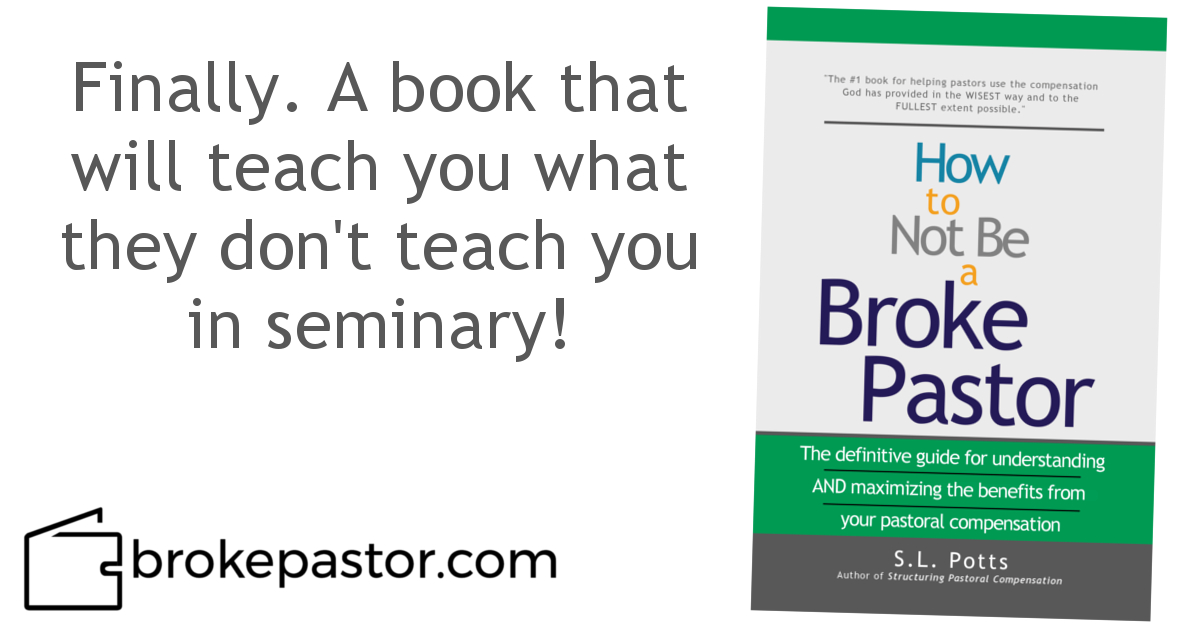An excerpt from Structuring Pastoral Compensation:
Over the years, I have received numerous gifts from our church. Some were for Christmas, others were for anniversaries, and others were just because they loved us.
In fact, I just celebrated my 10th anniversary as the lead pastor of our church. They were very kind to us, and surprised us with a party. Many people brought cards and notes thanking us for our ten years of service. It was touching, and we were so honored.
It has been my observation over the years that most churches love their pastors. While they may not yet have every component discussed in this book as a part of their pastor’s total compensation package, they do genuinely want to care and provide for their pastor in practical and monetary ways.
One of the most common ways this is done by many churches is through the giving of bonuses or gifts to pastors either on special occasions (i.e. an anniversary) or around holidays (i.e. Christmas).
While this can be a great way to love and care for your pastor, a few things need to be said about bonuses and gifts.
Source of Funds
Before giving a bonus or gift to your pastor, you must first determine where these funds will come from. You have two likely options.
Bonus/Gift from the Church’s General Fund
One option is to simply give the bonus or gift directly out of the church’s general fund. No special collection of funds would be taken for this. This is the simplest, and as you will see in a moment, best method for such gifts.
Bonus/Gift Collected by the Church
Unfortunately, the more common method for coming up with the funds for these kinds of gifts is by the church taking up a special collection or “love offering” specifically for the gift. People just write a check to the church and designate it towards the gift. What could be easier?
Maybe . . . money laundering? I say that, mostly, to get your attention, but understand that this is practically (and inadvertently) what ends up happening in many churches.
Any gift given to a church that is specifically designated as being for the personal enrichment of any individual is generally NOT considered a tax-deductible or charitable contribution. Many people and many churches do not know this . . . which causes the transaction to become, in effect, an example of religious “money laundering." I’m being a bit facetious, but I hope you get my point.
If a church really wants to take a collection for its pastor, it should first notify the congregation that all funds given will not be tax-deductible and will not appear on their annual giving statements at the end of the year.
For this reason, I believe that the best method for giving bonuses or gifts is simply to do so out of the church’s general fund.
Tax Considerations and Reporting
However, regardless of which method above is used, any bonus or gift given to an employee of the church must usually be reported as taxable income for the year.
For example, Pastor Bob has a total income of $50,000 of which he designates $25,000 as being his housing allowance. The church makes a 5% contribution to his SEP totaling $1,250. However, at Christmas, the church decides to give Pastor Bob a $2,000 Christmas bonus to show their appreciation for his service.
Two things will most likely now need to happen: A) because the $2,000 is considered salary, the church will likely need to make an extra $100 contribution to Pastor Bob’s SEP (5% x $2,000 = $100); and B) the church will likely need to show a total salary of $27,000 on Pastor Bob’s W2 at the end of the year.
What Does All of This Mean for You?
It means that churches have a responsibility to rightly handle these kinds of gifts, both in respect to your donors and to your pastors/employees. Do not engage in well-intentioned but, nonetheless, unethical practices.
However, I would encourage you to make it a regular feature of your church’s care for your pastors to give them these kinds of gifts. It shows the pastor and his family that the church cares for them in a very practical way.
Not all gifts have to be cash-based (though, if it is a gift that has a known, tangible value, the value will very likely still need to be reported as salary.) Again, I have found that what pastors want most is to be remembered, thought of, and appreciated.
I’ll never forget my five-year anniversary at our church. As the day arrived, I didn’t expect or hope for any kind of monetary or non-monetary gift. All I wanted was a hug and a “thank you.” Not because I felt that I deserved to be thanked . . . but just because I wanted to know that our people remembered me.
So, let me encourage you to remember your pastors – love them, show them you care, remind them often of what a blessing they are to you. You will never know how much that truly means.
Stacy Potts is a pastor, author, and consultant specializing in pastoral compensation and personal finance issues. He is the author of multiple personal finance books for pastors including How to Not Be a Broke Pastor and The Pastor's Guide to Wise Investing. He lives in Virginia Beach, VA, with his wife, Jamie, and their two children, Nathaniel and Hannah. Visit his website at www.brokepastor.com.

